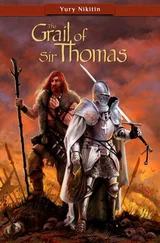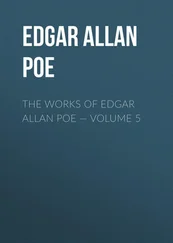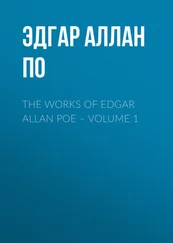Thomas Browne - The Works of Sir Thomas Browne, Volume 3
Здесь есть возможность читать онлайн «Thomas Browne - The Works of Sir Thomas Browne, Volume 3» — ознакомительный отрывок электронной книги совершенно бесплатно, а после прочтения отрывка купить полную версию. В некоторых случаях можно слушать аудио, скачать через торрент в формате fb2 и присутствует краткое содержание. ISBN: , Жанр: foreign_antique, foreign_prose, на английском языке. Описание произведения, (предисловие) а так же отзывы посетителей доступны на портале библиотеки ЛибКат.
- Название:The Works of Sir Thomas Browne, Volume 3
- Автор:
- Жанр:
- Год:неизвестен
- ISBN:http://www.gutenberg.org/ebooks/39962
- Рейтинг книги:4 / 5. Голосов: 1
-
Избранное:Добавить в избранное
- Отзывы:
-
Ваша оценка:
- 80
- 1
- 2
- 3
- 4
- 5
The Works of Sir Thomas Browne, Volume 3: краткое содержание, описание и аннотация
Предлагаем к чтению аннотацию, описание, краткое содержание или предисловие (зависит от того, что написал сам автор книги «The Works of Sir Thomas Browne, Volume 3»). Если вы не нашли необходимую информацию о книге — напишите в комментариях, мы постараемся отыскать её.
The Works of Sir Thomas Browne, Volume 3 — читать онлайн ознакомительный отрывок
Ниже представлен текст книги, разбитый по страницам. Система сохранения места последней прочитанной страницы, позволяет с удобством читать онлайн бесплатно книгу «The Works of Sir Thomas Browne, Volume 3», без необходимости каждый раз заново искать на чём Вы остановились. Поставьте закладку, и сможете в любой момент перейти на страницу, на которой закончили чтение.
Интервал:
Закладка:
Since therefore after this fruit, curiosity fruitlesly enquireth, and confidence blindly determineth, we shall surcease our Inquisition; rather troubled that it was tasted, then troubling our selves in its decision; this only we observe, when things are left uncertain, men will assure them by determination. Which is not only verified concerning the fruit, but the Serpent that perswaded; many defining the kind or species thereof. Opinions of what kind the Serpent was , etc. So Bonaventure and Comestor affirm it was a Dragon, Eugubinus a Basilisk, Delrio a Viper, and others a common snake. Wherein men still continue the delusion of the Serpent, who having deceived Eve in the main, sets her posterity on work to mistake in the circumstance, and endeavours to propagate errors at any hand. And those he surely most desireth which concern either God or himself; for they dishonour God who is absolute truth and goodness; but for himself, who is extreamly evil, and the worst we can conceive, by aberration of conceit they may extenuate his depravity, and ascribe some goodness unto him.
CHAPTER II
That a Man hath one Rib less then a Woman
That a Man hath one Rib less then a Woman, is a common conceit derived from the History of Genesis , wherein it stands delivered, that Eve was framed out of a Rib of Adam ; whence ’tis concluded the sex of man still wants that rib our Father lost in Eve . And this is not only passant with the many, but was urged against Columbus in an Anatomy of his at Pisa , where having prepared the Sceleton of a woman that chanced to have thirteen ribs on one side, there arose a party that cried him down, and even unto oaths affirmed, this was the rib wherein a woman exceeded. Were this true, it would ocularly silence that dispute out of which side Eve was framed; it would determine the opinion of Oleaster , that she was made out of the ribs of both sides, or such as from the expression of the TextOs ex ossibus meis. maintain there was a plurality of ribs required; and might indeed decry the parabolical exposition of Origen , Cajetan , and such as fearing to concede a monstrosity, or mutilate the integrity of Adam , preventively conceive the creation of thirteen ribs.
How many ribs commonly in men and women.
But this will not consist with reason or inspection. For if we survey the Sceleton of both sexes, and therein the compage of bones, we shall readily discover that men and women have four and twenty ribs, that is, twelve on each side, seven greater annexed unto the Sternon, and five lesser which come short thereof. Wherein if it sometimes happen that either sex exceed, the conformation is irregular, deflecting from the common rate or number, and no more inferrible upon mankind, then the monstrosity of the son of Rapha , or the vitious excess in the number of fingers and toes. And although some difference there be in figure and the female os inominatum be somewhat more protuberant, to make a fairer cavity for the Infant; the coccyx sometime more reflected to give the easier delivery, and the ribs themselves seem a little flatter, yet are they equal in number. And therefore while Aristotle doubteth the relations made of Nations, which had but seven ribs on a side, and yet delivereth, that men have generally no more than eight; as he rejecteth their history, so can we not accept of his Anatomy.
Again, Although we concede there wanted one rib in the Sceleton of Adam , yet were it repugnant unto reason and common observation that his posterity should want the same. For we observe that mutilations are not transmitted from father unto son; the blind begetting such as can see, men with one eye children with two, and cripples mutilate in their own persons do come out perfect in their generations. For the seed conveyeth with it not only the extract and single Idea of every part, whereby it transmits their perfections or infirmities; but double and over again; whereby sometimes it multipliciously delineates the same, as in Twins, in mixed and numerous generations. Parts of the seed do seem to contain the Idea and power of the whole; so parents deprived of hands, beget manual issues, and the defect of those parts is supplied by the Idea of others. So in one grain of corn appearing similary and insufficient for a plural germination, there lyeth dormant the virtuality of many other; and from thence sometimes proceed above an hundred ears. And thus may be made out the cause of multiparous productions; for though the seminal materials disperse and separate in the matrix, the formative operator will not delineate a part, but endeavour the formation of the whole; effecting the same as far as the matter will permit, and from dividing materials attempt entire formations. And therefore, though wondrous strange, it may not be impossible what is confirmed at Lausdun concerning the Countess of Holland , nor what Albertus reports of the birth of an hundred and fifty. And if we consider the magnalities of generation in some things, we shall not controvert its possibilities in others: nor easily question that great work, whose wonders are only second unto those of the Creation, and a close apprehension of the one, might perhaps afford a glimmering light, and crepusculous glance of the other.
CHAPTER III
Of Methuselah
What hath been every where opinioned by all men, and in all times, is more then paradoxical to dispute; and so that Methuselah was the longest liver of all the posterity of Adam , we quietly believe: but that he must needs be so, is perhaps below paralogy to deny. For hereof there is no determination from the Text; wherein it is only particulared he was the longest Liver of all the Patriarchs whose age is there expressed; but that he out-lived all others, we cannot well conclude. For of those nine whose death is mentioned before the flood, the Text expresseth that Enoch was the shortest Liver; who saw but three hundred sixty-five years. But to affirm from hence, none of the rest, whose age is not expressed, did die before that time, is surely an illation whereto we cannot assent.
Again, Many persons there were in those days of longevity, of whose age notwithstanding there is no account in Scripture; as of the race of Cain , the wives of the nine Patriarchs, with all the sons and daughters that every one begat: whereof perhaps some persons might out-live Methuselah ; the Text intending only the masculine line of Seth , conduceable unto the Genealogy of our Saviour, and the antediluvian Chronology. And therefore we must not contract the lives of those which are left in silence by Moses ; for neither is the age of Abel expressed in the Scripture, yet is he conceived far elder then commonly opinioned; and if we allow the conclusion of his Epitaph as made by Adam , and so set down by Salian, Posuit mœrens pater, cui à filio justius positum foret, Anno ab ortu rerum 130. Ab Abele nato 129 , we shall not need to doubt. Which notwithstanding Cajetan and others confirm, nor is it improbable, if we conceive that Abel was born in the second year of Adam , and Seth a year after the death of Abel : for so it being said, that Adam was an hundred and thirty years old when he begat Seth , Abel must perish the year before, which was one hundred twenty nine.
Читать дальшеИнтервал:
Закладка:
Похожие книги на «The Works of Sir Thomas Browne, Volume 3»
Представляем Вашему вниманию похожие книги на «The Works of Sir Thomas Browne, Volume 3» списком для выбора. Мы отобрали схожую по названию и смыслу литературу в надежде предоставить читателям больше вариантов отыскать новые, интересные, ещё непрочитанные произведения.
Обсуждение, отзывы о книге «The Works of Sir Thomas Browne, Volume 3» и просто собственные мнения читателей. Оставьте ваши комментарии, напишите, что Вы думаете о произведении, его смысле или главных героях. Укажите что конкретно понравилось, а что нет, и почему Вы так считаете.












